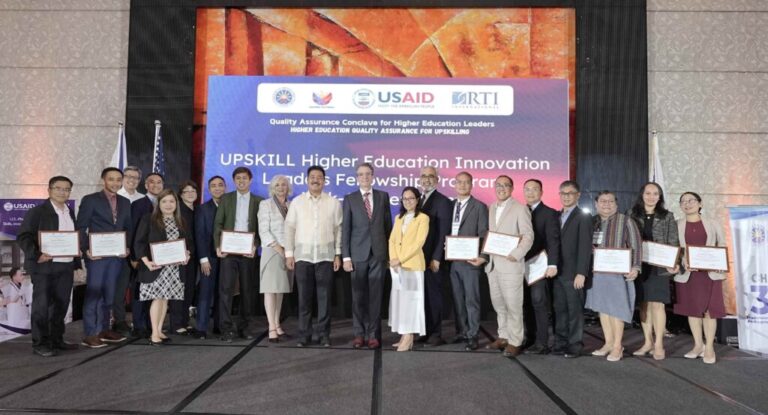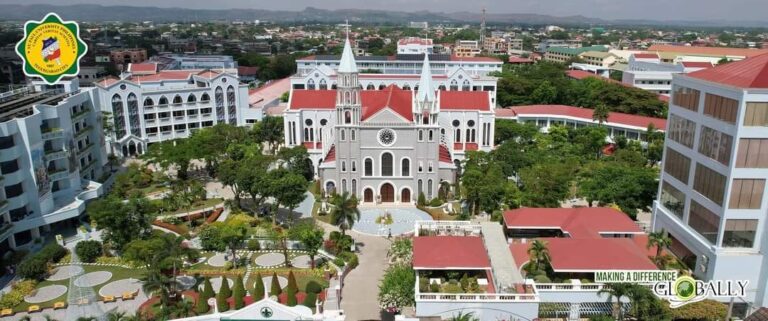PH lags behind regional peers in human capital development —WB report
by Claire Gamboa | June 24, 2024

Filipino children born today face a future where they may only achieve half their potential productivity by age 18 due to a lack of investment in early childhood development, a new World Bank (WB) report showed. The report reveals the Philippines had a Human Capital Index (HCI) of 0.52 in 2020, highlighting significant room for improvement.
The report, titled “The Philippines Human Capital Review: Investing in the Early Years to Boost Human Potential,” emphasizes the importance of investing in health, nutrition, education, and social programs during a child’s first decade.
According to Ndiamé Diop, World Bank country director for Brunei, Malaysia, the Philippines, and Thailand, these investments are crucial for the country’s successful transition to an upper middle-income status.
Diop emphasizes that equipping the population with education, skills, and health is essential for navigating a more complex and competitive economic landscape.
Despite having a young population, which could be advantageous if properly nurtured, the Philippines’ HCI paints a concerning picture. This index measures the human capital a child born today is expected to achieve by age 18, including survival rates, educational quality, and health outcomes.
While the Philippines performs well in expected years of schooling (12.95 years), exceeding the regional average for upper middle-income countries (11.8 years), it falls short in other crucial areas.
Interestingly, the Philippines allocates a substantial portion of its GDP to human capital development—4% to education between 2018 and 2021, on par with Malaysia—but this investment translates into significantly less per capita compared to neighboring countries except Indonesia.
The Philippines, meanwhile, performed lower than its regional peers in five of six subcomponents — the probability of survival to age five at 0.97, harmonized test scores at 362, learning-adjusted years of school at 7.49, fraction of children under five not stunted at 0.7, and the adult survival rate of 0.82.
This inefficiency suggests “structural bottlenecks” in how resources are utilized for human capital development.
The report calls for a unified national strategy focused on early childhood development, prioritizing interventions like nutrition programs and early education initiatives, and “investing more in STEMs (Science, Technology, Engineering, Mathematics) areas.”
It highlights the need for better coordination among government agencies and the use of technology to enhance service delivery, particularly in disadvantaged areas.
Local governments are encouraged to implement targeted training programs, provide financial support to struggling communities, and create incentives to boost human capital development.
National Economic and Development Authority (NEDA) Secretary Arsenio Balisacan said the government is implementing programs to support human capital but more needs to be done to take advantage of Filipinos’ potential to achieve long-term growth.
“While we have been addressing education and health issues, human capital in general, I think we have to take a whole of government approach,” Balisacan said at the World Bank’s launch of the Philippines Human Capital Review report at the Ascott Hotel in Bonifacio Global City.
Balisacan added the government is pushing for the passage of legislative measures to promote human capital development such as the Academic Recovery and Accessible Learning Program, which seeks to establish a national learning intervention program.
It is also pushing for the Enterprise-based Education and Training Act that seeks to improve workforce competitiveness through upskilling and reskilling, and the Expanded Government Assistance to Students and Teachers in Private Education that seeks to expand government assistance to the kindergarten and elementary levels.
“Like any investment, human capital development requires sustained, strategic, and coordinated efforts to bear fruit. There is no time to waste, for the consequences of our actions (or inactions) will run deep,” he said.
SHARE THIS NEWS!
RELATED ARTICLES




